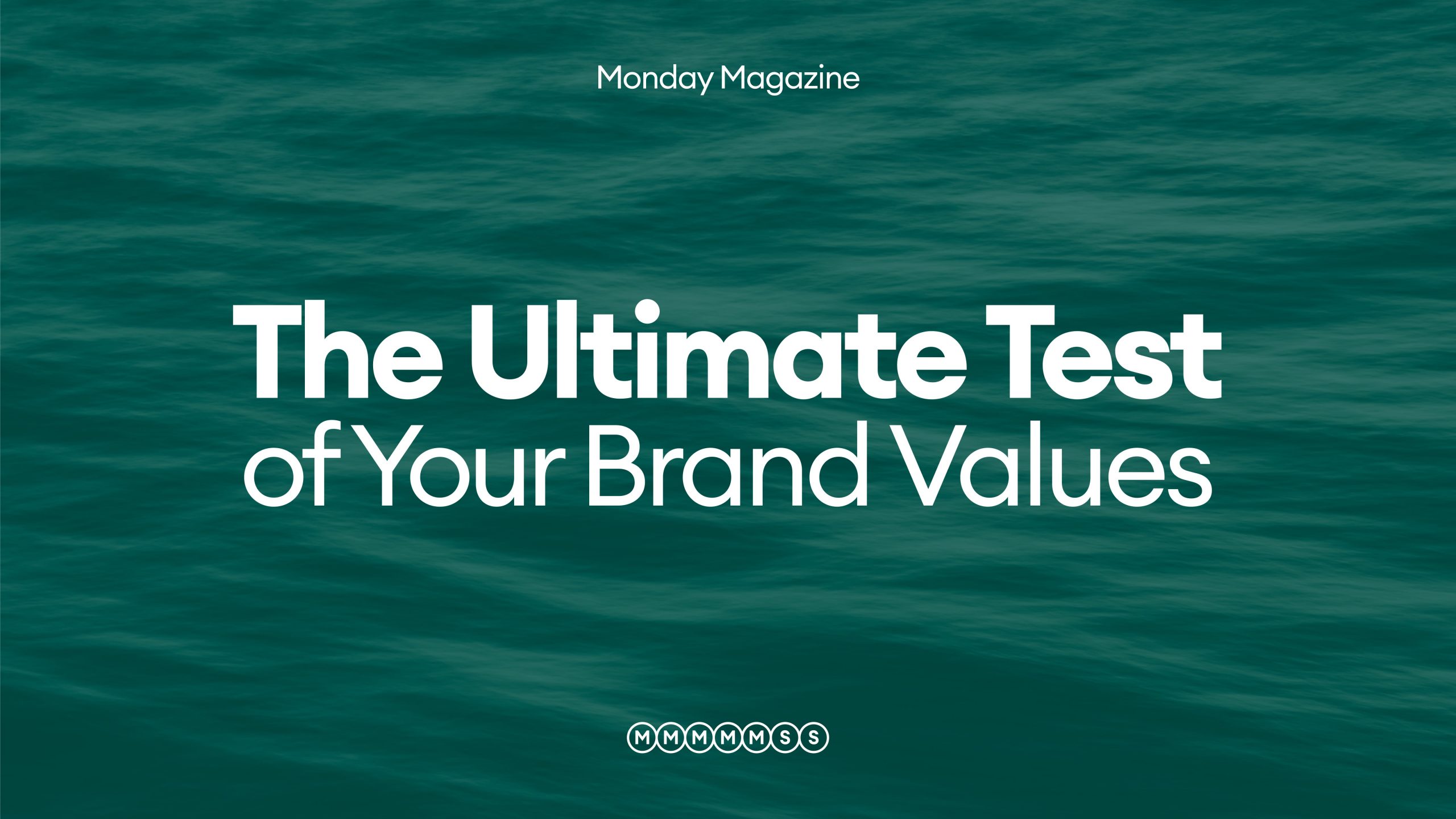Not too long ago I had a huge opportunity land in my lap: a massively-funded new vehicle brand from the UK was coming to Vancouver. I had a direct link to the person who owned the brand rights in Canada, and that person really wanted to work with Monday. With the outdoor/active industry in a long slump, this opportunity was the difference between a flat year and a very profitable one.
I began to put together my proposal, doing a bit of research:
What I originally assumed was an electric vehicle was in fact an old-fashioned gas-guzzler. Digging deeper, it’s actually the brainchild of Britain’s biggest advocate of fracking, and the founder of a multinational chemical company.
Meanwhile, the second page of the pitch deck template reads: “The planet is our number one client.” Hm. I momentarily deleted that slide. Then added it back in. Deleted it again. Added it back, and considered how I would frame this to the client in my pitch meeting.
It was confronting.
I heard my own words that I’ve said to clients a dozen times: “Values are only values when you are willing to put real money towards them.” If you aren’t willing to allocate resources (or lose revenue) for your values, then what is the point of values at all?
I called the prospect and said I couldn’t pitch on this work. He made a compelling attempt to talk me into it. I won’t pretend it wasn’t hard to decline—I really liked him and the product was very cool. That contract would have been a financial game changer. But it also would have destroyed the trust of our clients and my team.
The minute you feel compelled to delete one of your values or rewrite them for a particular audience, you should ask if they were ever truly your values.
In the year ahead, a lot of brands might be backpedalling some of the big claims they’ve made around sustainability, diversity or equity. Brands that were making climate pledges, diversifying their talent pools, and posting black squares just a few years ago may be quietly hitting delete on swaths of their brand book.
Do you work at one of those brands? How do you feel about that? What does it say about their priorities? What other commitments have they made that might now be easier to ignore?
We’re about to see fewer “sustainable” collection launches, fewer pride campaigns, fewer dollars invested in innovative biomaterials, and brand-sponsored beach cleanups. We may no longer see differently abled talent in campaigns. In fact, we may no longer see different body sizes in campaigns. Brands will stop considering the impact of their packaging or offsetting their carbon output. Doing good is officially out of vogue.
You might not notice the impact right away, but eventually it will show up in palpable ways—in how we treat customers, how we design products and stores, who gets the job or the promotion. It will show up in our words and our landfills.
And the near-term cost might be high for those of us who double down on our values. But that’s why we worked so hard to define those values, isn’t it? So that we know what to stand up for when something is really at stake.







